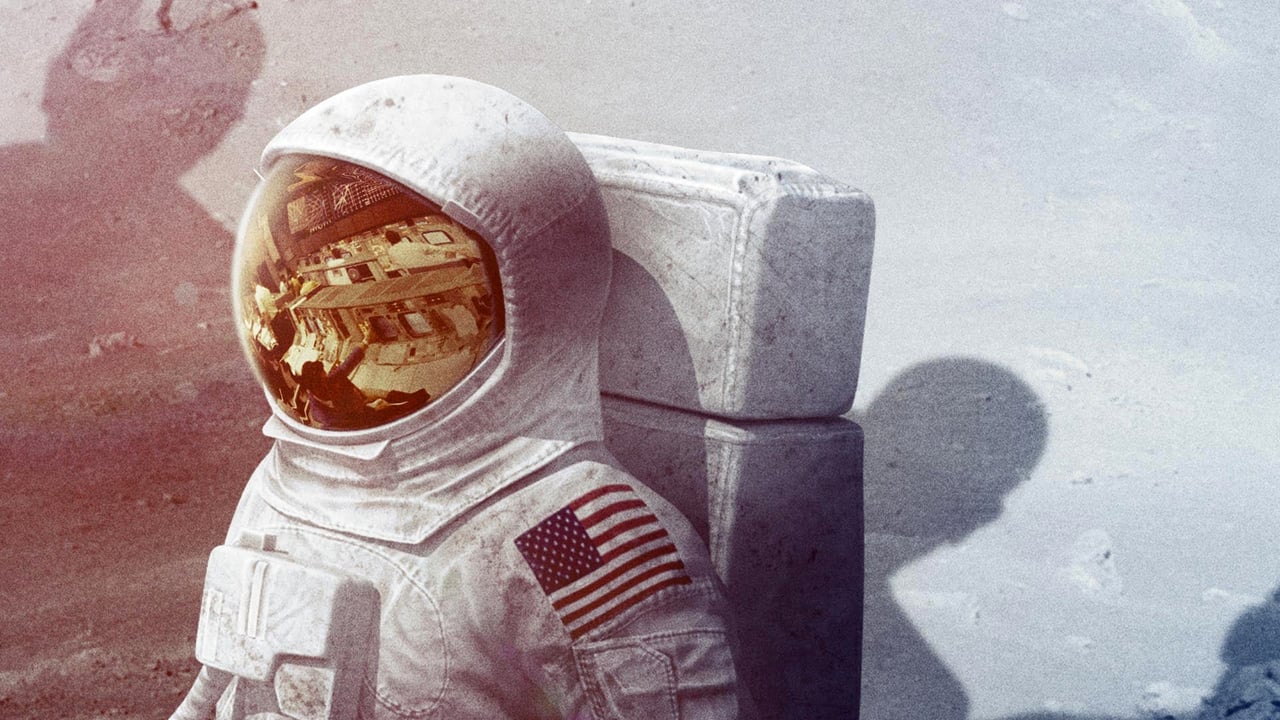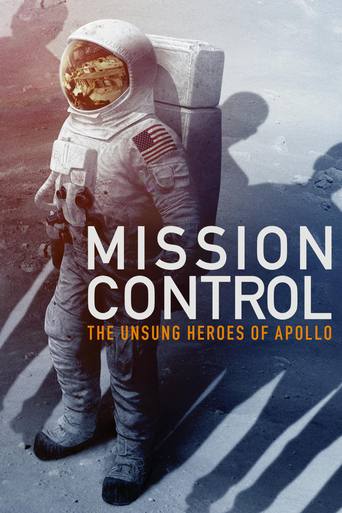

I live in Houston. Hearing a story about the unsung heroes who worked behind the scene who worked in mission control was breathtaking. They tell the story of the day to day life. How most of them started and didn't have any idea what they were doing. It was a group of individuals who needed to come together and work together on separate projects to ensure the success of not only the race to space but the success of future space missions to come. The combination of real footage and interview questions to people who worked in mission control is absolutely amazing. You feel for these men, and you really feel the weight of all their decisions they had to make. As the story progress, you hear about the incredible mission success story of Apollo 13. Absolutely one of the best documentary I've seen on this topic.
... View MoreIf you've studied your history, watched the Discovery Channel and seen movies like 1983's "The Right Stuff", 1995's "Apollo 13" or even "Space Camp" (1986), "Armageddon" (1998) or "Gravity" (2013), you may think you know about the U.S. space program. Those films are all excellent (as are many other similar movies), but they only tell part of the story. If you haven't seen a well-made documentary on the subject you don't know NASA. 2017's "Mission Control: The Unsung Heroes of Apollo" (NR, 1:41) fills in some of the gaps in our knowledge and increases our appreciation for the accomplishments of the National Aeronautics and Space Administration (especially regarding the missions to the moon) and the men who got us there. What the terrific 2016 Best Picture Oscar nominee "Hidden Figures" did for black female NASA employees, this doc does for the pasty guys with crew cuts whom those ladies supported."Mission Control: The Unsung Heroes of Apollo" starts by establishing its story's historical context. In 1957, the Soviet Union shocked the world by putting Sputnik, the first man-made satellite in human history, into orbit around the earth. The following year, President Eisenhower created NASA and both he and his successors, Presidents Kennedy and Johnson, refocused our attention on the space race, but it took about a decade for the U.S. to pass the U.S.S.R. Besides launching the earth's first artificial satellite, the Russians also put a man into space and then into orbit before their American Cold War rivals accomplished those feats. But by 1962, the U.S. had caught up with the Soviets and, encouraged by JFK's famous 1961 message to Congress, had set its sights on getting to the moon before the 60s had ended.After the Project Mercury missions got American astronauts into space and Project Gemini increased the complexity and capabilities of American spacecraft, Project Apollo was created to fulfill President Kennedy's stated goal of "landing a man on the moon and returning him safely to the earth". Only, it wouldn't be a "him"; it would be "them", several groups of "them", groups of three men who would risk their lives to get to the moon. And it would only happen after much blood, sweat and tears. NASA was creating a space program from scratch and inventing the necessary processes and procedures as they went along. But they still had doubts as to whether they could even achieve the President's objective.The dangers inherent in a robust space program (and just how much work Apollo had to do) became painfully clear in 1967 when the three astronauts of Apollo 1 were killed in a cabin fire during a prelaunch test. After taking 20 months to re-evaluate every aspect of the Apollo program, progress resumed. As this documentary works its way through the Apollo missions, it pays special and increasing attention to those which made the most history, especially Apollo 8, Apollo 11 and Apollo 13. The Apollo story is told through a combination of interviews with several surviving members of NASA mission control during the Apollo years, a significant amount of archival footage and some modern animation."Mission Control: The Unsung Heroes of Apollo" is a fascinating, well-balanced and entertaining documentary. It's always fun to learn something new and learning about the Apollo story through this film is about as much fun as such a thing gets. The interviews personalize the Apollo mission control experience and director David Fairhead and his team keep the clips short and the editing crisp. It's surprising how much archival footage exists to illustrate the history the film tells us and it's all well-placed throughout the movie. All this is supplemented by terrific computer animation which shows us some of the most important moments in Project Apollo like they've never before appeared in a single feature film. This documentary is so good, I was wishing it were longer than it is. "A-"
... View MoreWhat a beautiful film. The interviews and archival footage and VFX come together and you are able to step back in time and relive the space program's evolution through the eyes of the heroes of the program. I was immediately swept back to my childhood and sitting in front of the large black and white Motorola television with my dad, former US Army Air Corps pilot, watching the moon landing. The pride our nation felt and the amazement of it all - I'll never forget it. Through the interviews in the film, the director really captures the essence of who these men were and what drove them to lead and become a team. I hope all young people will see this film to see the true spirit of our nation, the incredible contribution of these heroes to our country and the advancement of science, and the emotional attachment to the program we as civilian observers all shared through the Apollo years.
... View MoreI had the pleasure of seeing "Mission Control: The Unsung Heroes of Apollo" during SXSW Film 2017. I thought the documentary was well constructed, juxtaposing stills and videos from the late 1960s and early 1970s with present-day video interviews of many of the engineers who ran Mission Control at NASA. This is the kind of documentary that could easily be 10 hours, so I can understand the challenges the director faced to determine what to put in and what to leave out from the primary feature.Several of the engineers interviewed in the movie were present on stage after the screening, including John Aaron and Jerry Bostick.The documentary included interviews with Mission Control managers and engineers Dr. Christopher Kraft, Gene Kranz, Glynn Lunney, Jerry Bostick, John Aaron, Gerry Griffin, Ed Fendell, Sy Liebergot, and several others. It also had interviews with astronauts Gene Cernan and Jim Lovell.The movie begins at the dawn of the Space Race with discussions of test pilots and moves quickly to the sense of urgency created when the USSR launched Sputnik and put Yuri Gagarin into space. It covers the Mercury, Gemini and Apollo programs well through Apollo 13, but then summarizes Apollo 14 through present-day ISS in only a few minutes. While the stories of Apollo 1, Apollo 8, Apollo 11, Apollo 12, and certainly Apollo 13 are incredibly engaging, I would have loved to see a bit more time devoted to events after Apollo 13, and a deeper discussion from the interviewees on how they felt as the program wound down and the last few Apollo flights were canceled.Nevertheless, the documentary is really great, and strongly recommended. In a few more years, all the great leaders who made six moon landings and much more at NASA possible will no longer be with us. Think about that as you watch this, and consider supporting continued space exploration.
... View More